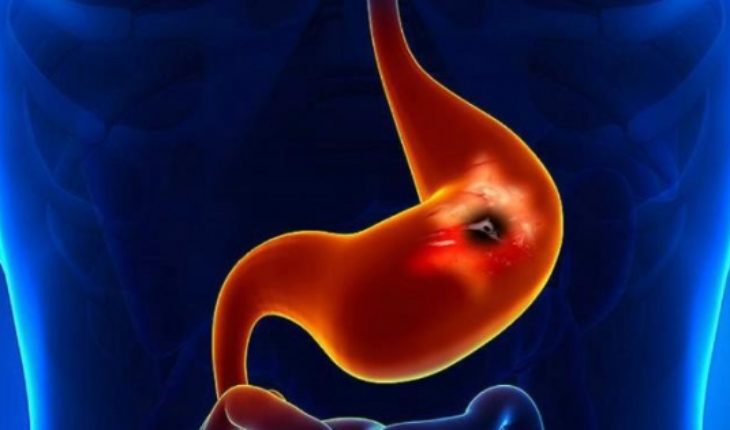Every October 2, WHO commemorates World Stomach Day and Chile is a warning point on the map. This considers that gastric cancer represents the third leading cause of cancer death in both sexes in the world, reaching abyssizing figures of 723 thousand deaths, 8.8% of all deaths from the disease.
Pablo Cortés, president of the Chilean Society of Gastroenterology (SChGE), points out that in Chile gastric cancer is very common with an incidence (new diagnoses every year) of 23.3 per 100,000 men and 9.2 per 100,000 women. In addition, a high mortality rate of 9.4 per 100 thousand inhabitants places it as one of the leading causes of cancer death in Chile.
The disease is rare in young patients. In men it increases significantly its frequency from the age of 50 and in women from the age of 60. Mortality from this cause has not changed in the last 20 years, making us a regrettable world and Latin American benchmark.
Gastric cancer is detected in our country, despite multiple efforts, at an advanced stage in more than 90% of the time, with a survival rate of less than 10% at 5 years after diagnosis. This means that in Chile, 3,000 people die each year from gastric cancer.
Early detection is critical
Detecting this cancer in early stages allows healing treatments. In some countries, population screening or screening strategies have been implemented, effective in finding this cancer in the early stage, but at high cost because of the high volume of procedures to be performed (serological, radiological, endoscopic, histological, among others).
The president of the SChGE emphasizes that in our population this strategy is posed in the most at-risk groups (such as patients with family history), but a major challenge is to use every endoscopy that is done in any person, because of the indication as an opportunity to detect cancer in its earliest stages by performing high-quality endoscopy.
For reference alone, in Japan less than half of patients diagnosed with gastric cancer die from this cause, being that they lead the world ranking of this diagnosis. In Chile, on the other hand, approximately 90% of diagnosed patients die from this tumor.
That is why the SChGE notes that the main difference between this approach as a country is given by the precocity of the diagnosis.
Helicobacter pylori
From the point of view of gastric cancer prevention it is important to consider that, although it is a multifactorial disease, the main causal factor is chronic infection with Helicobacter pylori which is considered a type 1 carcinogen.
This implies a very important route of prevention of this cancer. According to Cortés, more than 60% of adult Chileans behave the bacteria and most of them do not know it, as they have no symptoms. “In countries where the infection rate in the general population has declined, the frequency of gastric cancer has decreased, and the detection and treatment of Helicobacter pylori in at-risk populations has decreased, it has shown a decrease in development gastric cancer,” he points out.
The SChGE spokesman concludes by stating that “the vast majority of patients with the infection will not develop intestinal-type gastric cancer, but patients without this infection do not develop it. This is why treating this bacteria is a unique prevention opportunity. Considering, on the one hand, the large number of people infected and the high incidence and mortality of gastric cancer, and on the other hand the low number of infected people who developed gastric cancer and the difficulty in achieving its eradication with an increase in antibiotic resistance, the indication of treatment should be discussed with the treating physician.”
In line with international consensus, the position of the Chilean Association of Digestive Endoscopy (ACHED), a subsidiary of SChGE, is to suggest this treatment to any patient who is detected with the infection in an endoscopy, considering the high numbers of incidence and mortality of gastric cancer nationwide.
translated from Spanish: World Stomach Day: 3,000 people die each year from gastric cancer in Chile
October 2, 2019 |





